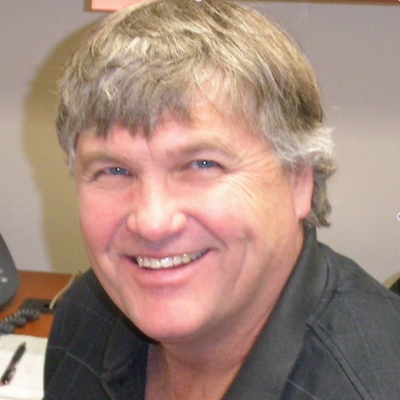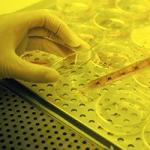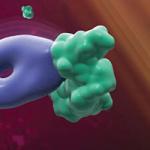
Research Topics
The Role of Nitric Oxide in Cancer Treatment
Over the last decade, the role of free radicals and oxidative stress has been shown to be important in a vast number of biological processes. The diatomic molecule nitric oxide (NO) has been shown to participate in a large number of physiological processes ranging from cardiovascular and neurologic to playing essential roles in a variety of immunological responses. This broad range of biologic effects has created one of the fastest growing fields in biomedical science. With this in mind, we have sought to determine if there are roles for this diatomic radical in cancer treatment.
Nitric oxide participates in various processes associated with cancer biology. Though NO possesses tumoricidal properties, it also can promote tumor growth. Our research is aimed at understanding the role of NO with different processes in tumor biology at the chemical, biochemical, cellular, and physiological levels to explore potential new strategies.
The major determinant for NO effects in vivo is its chemical properties. The chemistry of NO in biological systems is complex, and each reaction has potential deleterious or beneficial effects. To decipher the chemical reactions that may account for the paradoxical effects of NO, we have developed a discussion referred to as the chemical biology of NO, which is a guide to the chemistry of NO that can take place in vivo. This compilation of chemical reactions provides the fundamental information needed to translate the chemistry of NO into methods for improving modalities of cancer treatment. There are currently three main projects:
- Chemistry of NO in biology. This research is dedicated to understanding the chemical, biochemical, and cellular mechanisms of NO, research that provides methods for detection as well as delivery (modulation) of NO chemistry. Other aspects involve what effect these chemical/biochemical reactions have on cytokine function and DNA repair. We are also starting to chart endogenous chemistry mediated by nitric oxide synthase in vitro and in vivo using various analytical techniques.
- The chemical biology of NO and associated toxicological mechanisms. This research is devoted to understanding what effect the chemical reactions of NO have on cytotoxicity and tissue damage.
- NO and cancer therapy. This research is dedicated to applying the basic chemical knowledge of NO to improve existing modalities of cancer treatment. We are exploring how NO donors and inhibitors may modulate chemotherapeutic agents and radiation response.
The investigation of the basic chemistry of NO as it relates to physiological, cellular, and signal transduction, coupled with the development of methods for the detection and delivery of NO in vivo, may be readily translated to strategies for improved treatment of cancer as well as other diseases.
Biography
Dr. David A. Wink received his Ph.D. in chemistry at the University of California, Santa Barbara. Following a postdoctoral fellowship in biochemistry as a National Research Service Award recipient at the Massachusetts Institute of Technology, he joined the Laboratory of Comparative Carcinogenesis at the NCI Frederick Cancer Research and Development Center (FCRDC) as a staff fellow. He then joined the Radiation Biology Branch at the NCI in 1995, where he received tenure in November 1999. He chaired the Gordon Conference on Nitric Oxide in Barga, Italy in 2009. In 2008 he was nominated as a Fellow of the American Association for the Advancement in Science in Chemistry.
Selected Publications
- Miranda KM, Wink DA. Persulfides and the cellular thiol landscape. Proc Natl Acad Sci U S A. 2014;111(21):7505-6.
- Heinecke JL, Ridnour LA, Cheng RY, Switzer CH, Lizardo MM, Khanna C, Glynn SA, Hussain SP, Young HA, Ambs S, Wink DA. Tumor microenvironment-based feed-forward regulation of NOS2 in breast cancer progression. Proc Natl Acad Sci U S A. 2014;111(17):6323-8.
- Soto-Pantoja DR, Ridnour LA, Wink DA, Roberts DD. Blockade of CD47 increases survival of mice exposed to lethal total body irradiation. Sci Rep. 2013;3:1038.
- Heinrich TA, da Silva RS, Miranda KM, Switzer CH, Wink DA, Fukuto JM. Biological nitric oxide signalling: chemistry and terminology. Br J Pharmacol. 2013;169(7):1417-29.
- Basudhar D, Bharadwaj G, Cheng RY, Jain S, Shi S, Heinecke JL, Holland RJ, Ridnour LA, Caceres VM, Spadari-Bratfisch RC, Paolocci N, Velázquez-Martínez CA, Wink DA, Miranda KM. Synthesis and chemical and biological comparison of nitroxyl- and nitric oxide-releasing diazeniumdiolate-based aspirin derivatives. J Med Chem. 2013;56(20):7804-20.
Related Scientific Focus Areas




Molecular Biology and Biochemistry
View additional Principal Investigators in Molecular Biology and Biochemistry

This page was last updated on Thursday, September 28, 2023